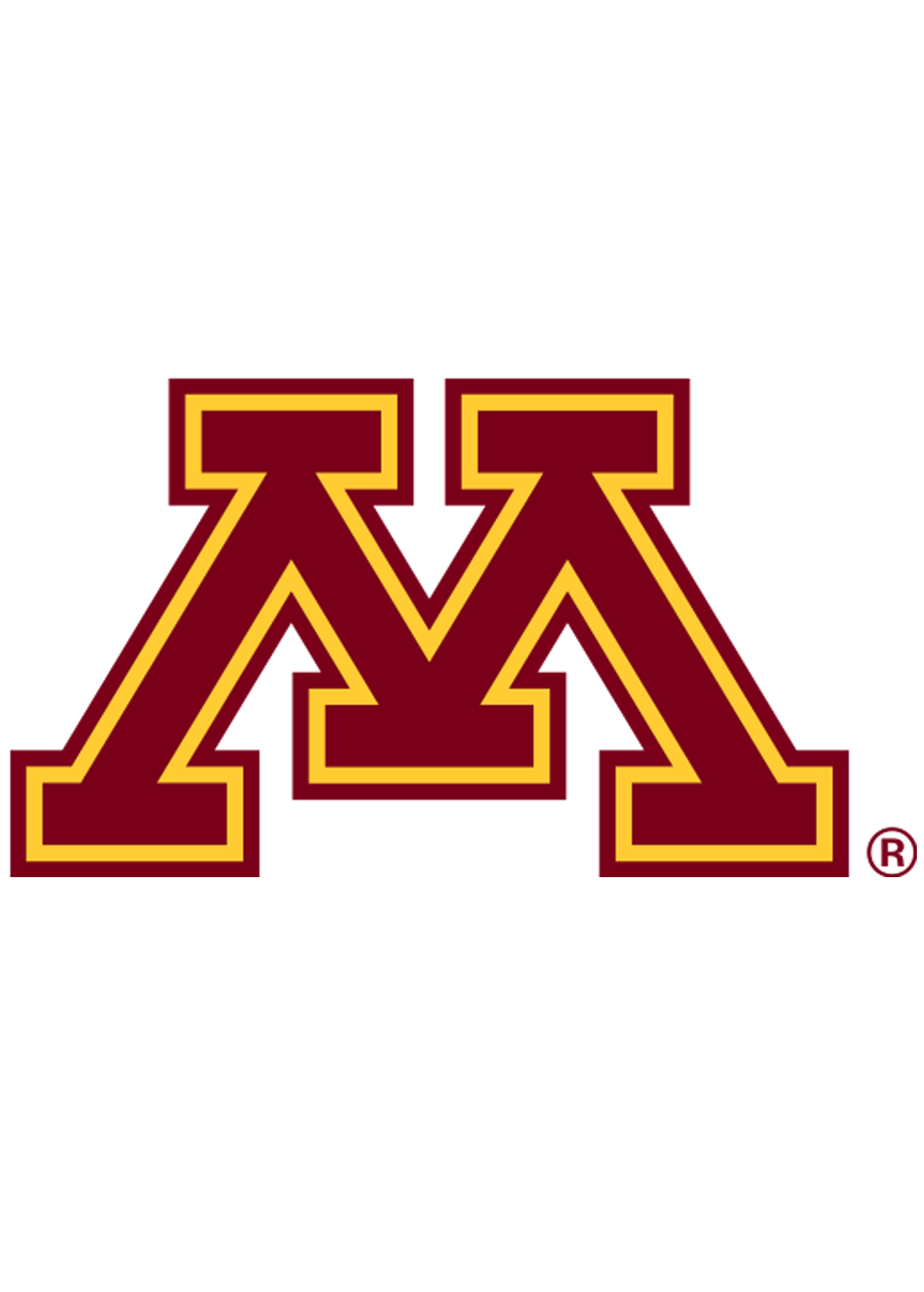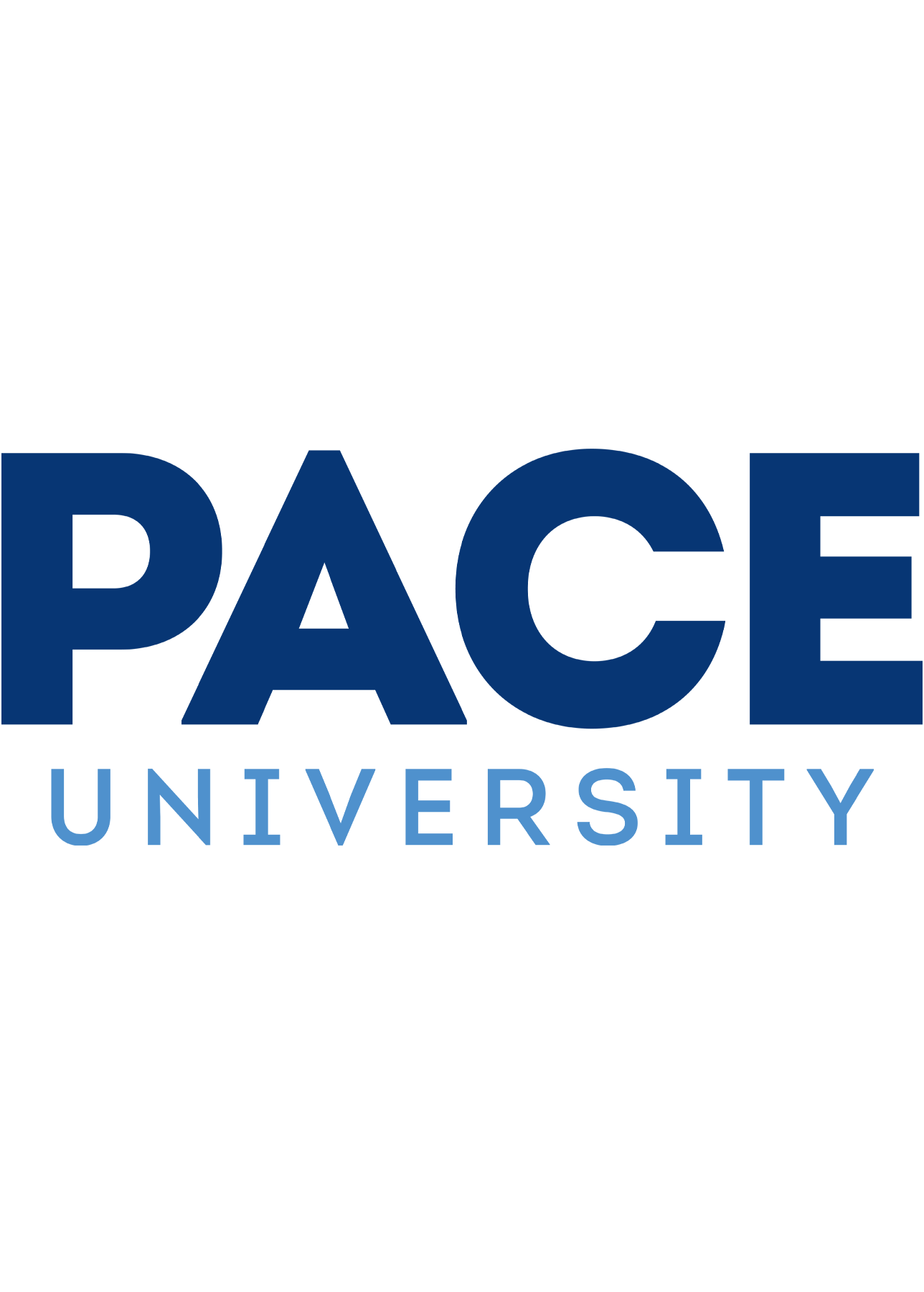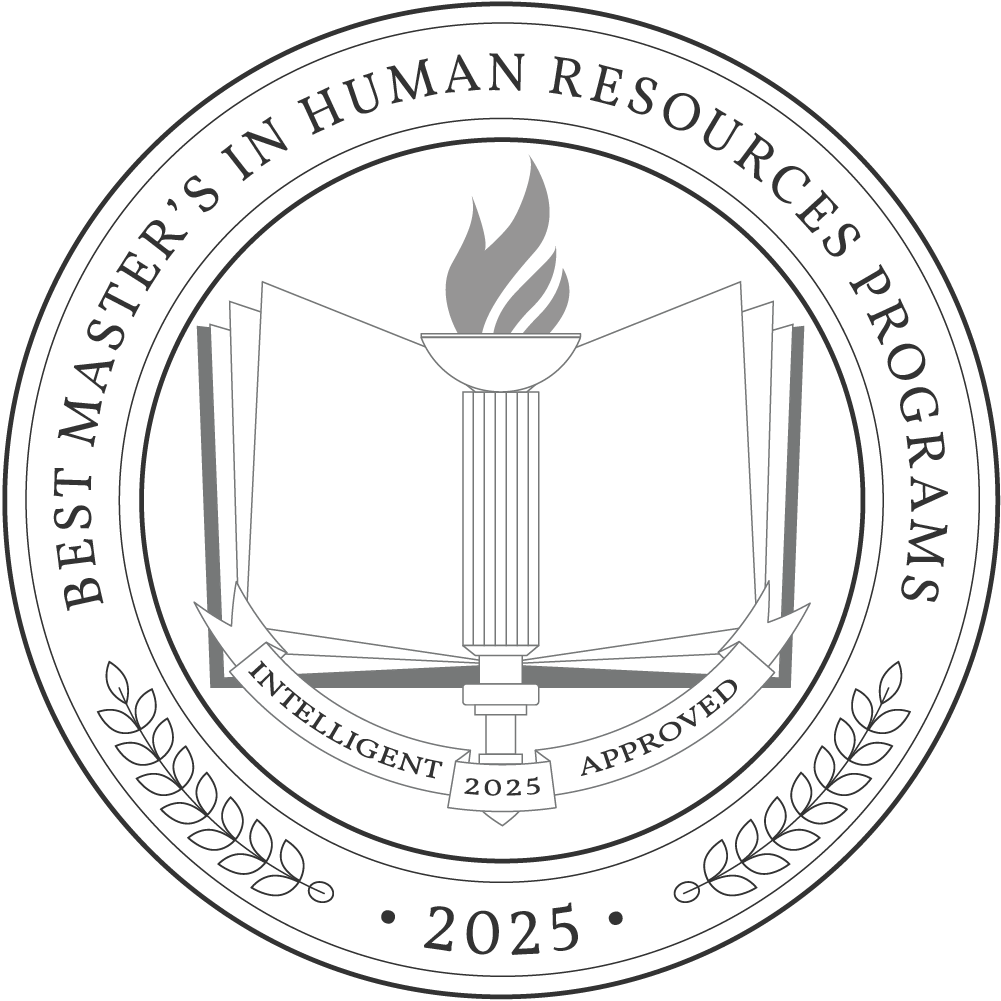A master’s in human resources (HR) degree prepares students for advanced roles in the HR field, such as HR manager, compensation manager, and benefits manager. According to the Bureau of Labor Statistics, HR managers have a median annual salary of $130,000, while compensation and benefits managers have a median annual salary of $131,230.It typically takes one to two years for full-time students to complete a master’s degree in human resources. For part-time students, it may take anywhere from two to five years.
For the 2020-2021 academic year, the average tuition for a master’s in HR degree was $19,749 per year at in-state tuition rates, per the National Center for Education Statistics.
Why Trust Us
The Intelligent.com Higher Education Team is dedicated to providing students with independent, equitable school and program rankings and well-researched resources. Our expert-driven articles cover topics related to online colleges and programs, paying for school, and career outlooks. We use data from the U.S. Department of Education’s College Scorecard, the National Center for Education Statistics, and other reputable educational and professional organizations. Our academic advisory team reviews content and verifies accuracy throughout the year for the most current information. Partnerships do not influence rankings or editorial decisions.
- Analyzed over 2,000 national, accredited, and nonprofit colleges and universities
- 800+ rankings pages are reviewed and updated yearly
- Content is informed by reputable sources, surveys, and interviews with academic advisors and other experts
- Over 100 data points are reviewed for accuracy and quality throughout the year, including sources
How we rank schools
Our list features the best Human Resources degree programs at top colleges nationwide. Each school featured is a nonprofit, accredited institution — either public or private — with a high standard of academic quality for post-secondary institutions.
We evaluated each school’s program on tuition costs, admission, retention and graduation rates, faculty, reputation, and the student resources provided for online students. We collected data from trusted sources like the National Center for Education Statistics, individual school and program websites, school admissions counselors, and other data sources. Then, we calculated the Intelligent Score on a scale of 0 to 100 based on the following criterion:
Academic Quality:
- Admission rate versus enrollment rate
- Retention rate of students who return after year one
- Accreditation status (regional and programmatic)
- Nonprofit status, both private and public institutions
Graduation Rate
- Overall graduation rate
- Total number of currently enrolled students, including diversity metrics
- Student-to-faculty ratio
Cost and ROI
- In-state and out-of-state per-credit tuition rates and fees
- Required credits to graduate
- Earning potential after graduation
- Availability of federal student loans, scholarships, and other financial aid options
Student Resources
- Available student services for online-only and hybrid programs
- On-campus amenities like tutoring centers and the number of libraries
Read more about our ranking methodology.
Best 33 Accredited Master’s in Human Resources Programs
FiltersInstitution Type
Status
- Intelligent Score
- Alphabetically By University Name
- Acceptance Rate
- Enrollment
- In-state Graduate Tuition
- Out-of-state Graduate Tuition
- In-state Undergraduate Tuition
- Out-of-state Undergraduate Tuition

Cornell University
Intelligent Score: 99.41In-state: $58,586
Out-of-state: $58,586
In-state: $29,500
Out-of-state: $29,500
SAT: 1400-1540
ACT: 32-35
$2,173
On-Campus, Online, Hybrid
Middle States Commission on Higher Education
30

Texas A&M University Mays Business School
Intelligent Score: 98.78In-state: $8,395
Out-of-state: $36,849
In-state: $6,775
Out-of-state: $6,775
SAT: 1160-1380
ACT: 26-32
Resident: $437
Non-Resident: $978
On-Campus
Association to Advance Collegiate Schools of Business
37

University of Illinois at Urbana - Champaign
Intelligent Score: 98.63In-state: $14,317
Out-of-state: $33,824
In-state: $15,016
Out-of-state: $15,016
SAT: 1200-1460
ACT: 27-33
Resident: $702
Non-Resident: $1,093
On-Campus, Online
Higher Learning Commission
48

Michigan State University
Intelligent Score: 97.97In-state: $15,555
Out-of-state: $40,384
In-state: $18,858
Out-of-state: $18,858
SAT: 1100-1300
ACT: 23-29
In-State: $867
Out-of-State: $1,703
On-Campus
Higher Learning Commission
36

Villanova University
Intelligent Score: 95.39In-state: $56,730
Out-of-state: $56,730
In-state: $20,619
Out-of-state: $20,619
SAT: 1320-1460
ACT: 30-33
$940
On-Campus, Online
Middle States Commission on Higher Education
36

Ohio State University
Intelligent Score: 95.32In-state: $10,615
Out-of-state: $32,599
In-state: $11,560
Out-of-state: $11,560
SAT: 1210-1430
ACT: 26-32
Resident: $712
Non-Resident: $1,652
On-Campus
Association to Advance Collegiate Schools of Business
39

University of Minnesota
Intelligent Score: 93.54In-state: $13,318
Out-of-state: $31,616
In-state: $17,580
Out-of-state: $17,580
SAT: 1240-1460
ACT: 25-31
Resident: $716 - $1,146
Non-Resident: $1,188 - $1,901
On-Campus
Association to Advance Collegiate Schools of Business
40

DePaul University
Intelligent Score: 92.46In-state: $40,551
Out-of-state: $40,551
In-state: $19,370
Out-of-state: $19,370
SAT: N/A
ACT: N/A
$1,146
On-Campus
Association to Advance Collegiate Schools of Business
48

NYU School of Professional Studies
Intelligent Score: 91.18In-state: $52,204
Out-of-state: $52,204
In-state: $34,704
Out-of-state: $34,704
SAT: 1370-1540
ACT: 31-34
$2,575
On-Campus, Online, Hybrid
Middle States Commission on Higher Education
42

University of Houston
Intelligent Score: 88.15In-state: $8,449
Out-of-state: $20,665
In-state: $8,539
Out-of-state: $8,539
SAT: 1120-1310
ACT: 22-28
Resident: $641
Non-Resident: $1,161
On-Campus
Southern Association of Colleges and Schools Commission on Colleges
30

FIU College of Business
Intelligent Score: 87.44In-state: $4,721
Out-of-state: $16,529
In-state: $8,912
Out-of-state: $8,912
SAT: 1110-1260
ACT: 23-29
Resident: $455
Non-Resident: $1,001
On-Campus, Online, Hybrid
Association to Advance Collegiate Schools of Business
38-40

University of South Carolina
Intelligent Score: 87.15In-state: $12,288
Out-of-state: $33,528
In-state: $13,737
Out-of-state: $13,737
SAT: 1140-1340
ACT: 25-31
Resident: $600
Non-Resident: $1,031
On-Campus
Southern Association of Colleges and Schools Commission on Colleges
45

Pace University
Intelligent Score: 86.92In-state: $45,832
Out-of-state: $45,832
In-state: $32,256
Out-of-state: $32,256
SAT: 1060-1240
ACT: 22-28
$1,460
On-Campus
Association to Advance Collegiate Schools of Business
30

Utah State University
Intelligent Score: 86.47In-state: $6,732
Out-of-state: $21,677
In-state: $6,164
Out-of-state: $6,164
SAT: 1080-1320
ACT: 21-29
Resident: $985
Non-Resident: $1,758
On-Campus
Association to Advance Collegiate Schools of Business
37

University of Texas Arlington
Intelligent Score: 83.75In-state: $11,448
Out-of-state: $40,032
In-state: $12,028
Out-of-state: $12,028
SAT: 1210-1470
ACT: 26-33
Resident: $523
Non-Resident: $1,328
On-Campus
Association to Advance Collegiate Schools of Business
36

West Virginia University
Intelligent Score: 81.39In-state: $8,976
Out-of-state: $25,320
In-state: $10,134
Out-of-state: $10,134
SAT: 1030-1230
ACT: 21-27
Resident: $530
Non-Resident: $1,494
On-Campus, Online
Higher Learning Commission
30

Loyola University Chicago
Intelligent Score: 81.17In-state: $67,818
Out-of-state: $67,818
In-state: $97,480
Out-of-state: $97,480
SAT: 1190-1370
ACT: 27-32
$1,685
On-Campus
Association to Advance Collegiate Schools of Business
36

University of Richmond
Intelligent Score: 80.92In-state: $56,860
Out-of-state: $56,860
In-state: $25,260
Out-of-state: $25,260
SAT: 1280-1460
ACT: 30-33
$721
On-Campus
Southern Association of Colleges and Schools Commission on Colleges
30
How to Choose a Master’s in Human Resources Program
Choose your area of study
Human resources professionals handle a broad range of functions, such as recruiting, training, employee relations, benefits administration, and compensation analysis. Success in the HR field also requires an in-depth understanding of business and psychology. The first step in finding the right master’s in HR program is to choose a specialization.
Many schools offer specializations, also known as minors or concentrations, for students who want to focus on one specific aspect of HR. For example, a master’s in human resources program may have specializations for labor relations, learning and development, organizational leadership, or industrial psychology.
Research schools and programs
Once you choose a specialization, the next step is to research schools. It’s important to find a school that offers plenty of resources to help you succeed. For example, if you’re going back to school to improve your employment prospects, you may want to look for a school that offers résumé reviews or has career services professionals available to help you practice your interview skills.
Your schedule is also an important consideration. If you plan to keep working full-time, you may want to look for a school that has a part-time master’s in HR program. As you research your options, think about the following:
- Is full-time attendance the only option?
- Does the school require you to come to campus for every class, or are there online learning options?
- Do you have to complete an internship or write a thesis to complete the program?
- Have faculty members contributed to HR research or worked full-time in the HR field?
Prepare for tests and applications
Some schools require applicants to take the Graduate Management Admission Test (GMAT) or Graduate Record Examination (GRE). If your preferred school requires you to submit test scores, take the exam as early as possible. Use as many resources as possible, such as practice exams and test prep books, to get comfortable answering multiple types of questions.
Select your program
If you still have a long list of programs, take time to narrow it down to just a few options. Many schools charge application fees, so you may want to limit your out-of-pocket costs by applying to just three or four programs. Be sure to follow the application instructions carefully.
If you receive multiple acceptance letters, choose a program based on the total cost of attendance, the availability of your chosen specialization, the amount of financial aid available, and other essential factors.
Determine how you’ll pay for your degree
The last step is to determine how you’ll pay for your master’s in human resources degree. Your options may include student loans, employer tuition reimbursement, or scholarships. For the best chances of qualifying for need-based aid, submit the Free Application for Federal Student Aid (FAFSA) as soon as possible.
If you plan to apply for scholarships, start as early as possible. You may need to submit letters of recommendation, copies of your undergraduate transcript, and other materials to the scholarship commitment, so you’ll need plenty of time to gather the required documents.
Of course, you can always pay out of pocket for your master’s in HR if you have the funds to do so. Don’t forget to account for the cost of books, course fees, and other expenses.
Next, we compared this comprehensive list of online PhD programs to a list of aggregated college rankings from reputable publications like the U.S. News & World Report among others to simplify a student’s college search. We pored through these rankings so students don’t have to.
Master’s in Human Resources Programs That Might Interest You
Learn about start dates, transferring credits, availability of financial aid, and more by contacting the universities below.
What Can You Expect From a Master’s in Human Resources Program?
Master’s in human resources degree programs usually offer a blend of business, psychology, and organizational development courses. For example, you may complete courses in industrial psychology, business ethics, human capital management, international management, employment law, and organizational culture.
If you choose to specialize in a specific aspect of human resources, you may complete electives in learning and development, employee health and wellness, strategic management, diversity and equity, or labor relations.
Some programs also require a thesis, a capstone project, or an internship. Before writing a thesis, you may have to take a course in research methods or statistics. A capstone project is a comprehensive project designed to assess your mastery of human resources principles and practices.
Depending on how many credits you complete each term, it may take 1 to 2 years of full-time study to complete a master’s in human resources. Part-time students typically attend for 2 to 5 years.
Potential courses you’ll take in a master’s in human resources program
Master’s in human resources programs often include these courses, but the exact curriculum depends on which school you choose:
- Organizational leadership. Organizational leadership focuses on motivating teams to achieve shared goals. Courses in organizational leadership typically cover strategic planning, motivational techniques, principles of leadership, resource allocation, and employee engagement.
- Strategic management. Human resources professionals must make strategic decisions related to the hiring, management, and promotion of employees. Strategic management courses cover the theories and models used to create competitive advantage in various industries. Students may also learn about integrating technology into the decision-making process.
- Human capital management. Human capital management encompasses several important HR functions, including recruiting and workforce management. HCM courses focus on how effective human capital management can help businesses reach their goals.
- Global human resource management. Multinational corporations have employees in several countries, making it critical for HR professionals to understand the nuances of different cultures. Global HR management courses help students understand the legal and cultural ramifications of operating in specific business environments.
- HR analytics. Big data has revolutionized the human resources field, making it easier for HR professionals to identify concerning trends and take steps to address them. HR analytics courses focus on using data effectively. Students typically learn how to use HR data to make better decisions.
Master’s in Human Resources Degree Frequently Asked Questions
How do I apply to a master's in human resources degree program?
To apply for a master’s in human resources program, follow the instructions provided by the schools on your list of options. You may need to submit transcripts, letters of recommendation, and GMAT or GRE scores. It’s also common for graduate schools to request letters of intent, personal statements, or copies of your curriculum vitae.
To avoid mistakes that could delay your acceptance, contact an admissions officer to discuss the requirements for each school. Admissions professionals know exactly what you need to submit a complete application package, making them a great resource for prospective students.
How much does a master's in human resources degree cost?
According to the National Center for Education Statistics, the average in-state tuition rate for a master’s in human resources degree program was $19,749 for the 2020-2021 academic year. Tuition is an important consideration, but it’s not the only cost of completing a graduate degree.
Students also need to think about housing costs, textbooks, travel expenses, and other fees. For example, many schools charge a technology fee to cover the cost of specialized course software. It also costs money to drive to campus or take public transportation to classes and internship shifts.
For students taking online classes, there may be an additional fee to account for the added cost of purchasing digital textbooks and setting up online course infrastructure.
How long does it take to earn a master's in human resources degree?
It usually takes 1 to 2 years of full-time study to complete a master’s in human resources degree. It may take up to 5 years to complete a master’s in human resources degree if you take classes on a part-time basis.
How long it takes to complete a master’s in human resources degree depends on several factors, such as how many credits you complete per term. You may also need to complete several prerequisites before enrolling in core courses, increasing the amount of time it takes to finish the program.

